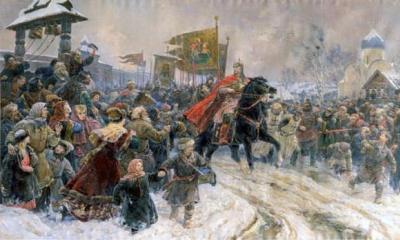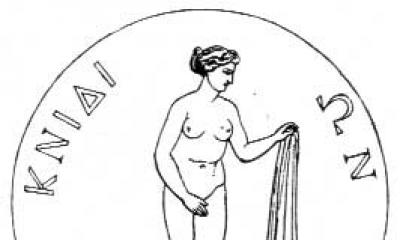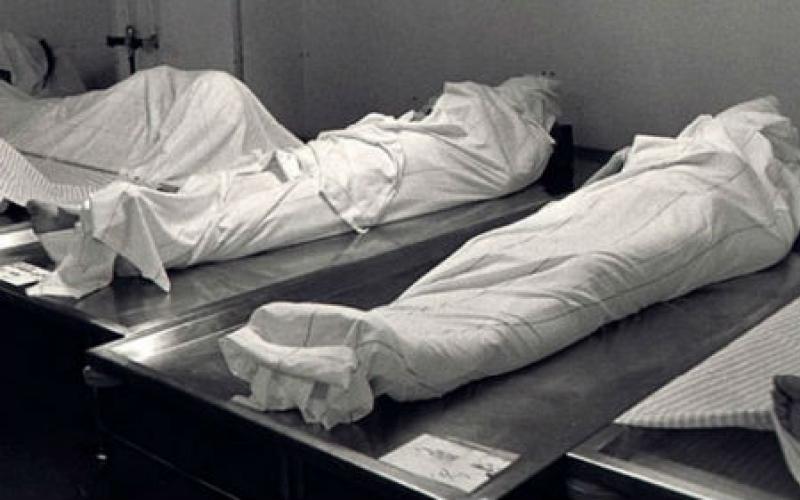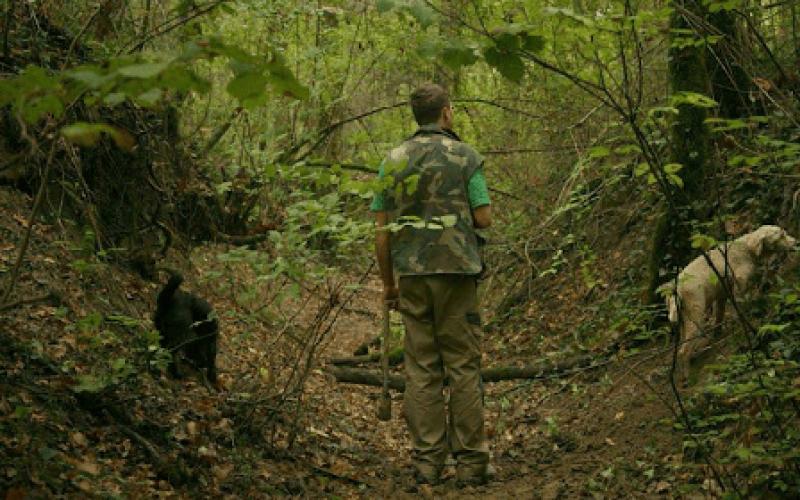One of the confusing moments in the use of articles is articles before geographical names. To be more precise, before geographical names, because they either do not have the article (), or the. The indefinite is not used before geographical names.
Basic rule
The general rule is this: the article the is used primarily before names denoting associations of objects, as well as with names of countries that include common nouns, such as federation, islands. For example, the Russian Federation, the Virgin Islands.
The article THE before country names
Most often, difficulties arise with the names of countries: Russian Federation or The Russian Federation? United Kingdom or The United Kingdom? United States or The United States? Let's address this issue first.
The article the is needed before country names if:
1. Title countries includes common nouns such as federation, states, kingdom, republic:
- the Russian Federation - the Russian Federation,
- the United States - United States,
- the United Kingdom - the United Kingdom,
- the Czech Republic - Czech Republic.
The abbreviated names of such countries are also written with the (the USA, the UK), but sometimes they are used without an article for brevity, for example, in headings, announcements, instructions (articles of this kind are often omitted in texts of this kind), for example: “Made in USA”.
2. The name of the country is a plural noun:
- the Netherlands
- the Philippines - Philippines,
- the Bahamas - Bahamas.
The article before the names of rivers, mountains, regions, islands, etc.
The article the can be used before the names of various place names.
Used:
1. Before the names of the poles and the equator:
- the Equator - Equator,
- the North Pole - North Pole,
- the South Pole - South Pole,
2. Before the names of deserts and peninsulas:
- the Mojave Desert - Mojave Desert,
- the Sahara - Sahara,
- the Balkan Peninsula - the Balkan Peninsula.
3. Before the names of groups of objects: mountain ranges, a group of lakes, islands:
- the Kuril Islands - Kuril Islands,
- the Great Lakes - Great Lakes,
- the Andes - Andes.
4. Before the names of oceans, seas and rivers (but not lakes):
- the Atlantic Ocean - Atlantic Ocean,
- the Thames - Thames,
- the Okhotsk Sea - the Sea of Okhotsk,
- the Nile River - Nile.
The article is not used:
1. Before the names of the continents.
In English-speaking countries, it is customary to distinguish seven continents:
- Africa - Africa,
- Asia - Asia,
- Europe - Europe,
- North America - North America,
- South America - South America,
- Antarctica - Antarctica,
- Australia - Australia.
2. Gore:
- Mount Everest - Mount Everest.
3. Islands:
- Sakhalin - Sakhalin.
- Grenada - Grenada.
3. States, cities, streets:
- Alaska - Alaska,
- Seattle - Seattle,
- Las Vegas Boulevard - Las Vegas Boulevard,
- Bourbon Street - Bourbon Street.
4. Lakes:
- Lake Erie - Lake Erie,
- Lake Baykal - Lake Baikal.
Exceptions and controversial issues: Ukraine or the Ukraine?
There is confusion with the names of some countries. For example, Congo is called both the Congo and Congo, probably due to the fact that the name of the country comes from the name of the Congo River, which is called only the Congo. The Gambia is called the Gambia, perhaps also because of the "river" origin of the word.
Ukraine is called both Ukraine and the Ukraine - this is a kind of English version of the well-known problem "in" or "in" Ukraine. In Soviet times, the variant "the Ukraine" prevailed, later "Ukraine" becomes more and more popular. The bottom line is that the article the in the name "the Ukraine" suggests that Ukraine is a geographical region, part of the Soviet Union. When Ukraine ceased to be part of the USSR, the option without the article began to be used more and more often. This can be clearly seen in the graph of mentions of two options in Google Books:  Now both options are encountered - someone adheres to old habits, but for the most part they write without an article, the option with “the” is being forced out, becoming obsolete. This is facilitated by the fact that from the point of view of a native speaker, the variant "Ukraine" is more logical - not because of political reasons, but simply because countries with the in the name are exceptions to the rule.
Now both options are encountered - someone adheres to old habits, but for the most part they write without an article, the option with “the” is being forced out, becoming obsolete. This is facilitated by the fact that from the point of view of a native speaker, the variant "Ukraine" is more logical - not because of political reasons, but simply because countries with the in the name are exceptions to the rule.
In the ranking of the most "unloved" topics in the English language, the use of the article occupies one of the top positions. This is due to the absence of this article in our native language. In addition, the use of the article the implies a huge number of exceptions. Unfortunately, the British could not come up with one universal rule for all cases.
Of particular difficulty for students is the use of the article the with proper names. Proper names include:
- names and surnames of people
- names of streets, roads, various buildings, sights, public places
- names of educational and other institutions
- names of various organizations
- names of newspapers and magazines
- historical names
- astronomical names
- titles of works of art and many others
There are certain rules for using the article the with proper names and titles, but there are also a huge number of exceptions that, with all desire, cannot be contained within the framework of one article. Even native speakers are not always sure which names need an article and which do not.
To introduce you to this topic, we have prepared a table of rules and examples, which shows the main cases of using the article the with proper nouns.
|
THE not used |
THE is used |
|
Names and surnames of people |
|
|
With the names and surnames of people, the is not used: John Smith |
If the whole family is meant, the surname is used in the plural with the article the: the Smiths the Browns the Simpsons If a person's surname is used in the meaning of "the same": The Mark who I met at conference called me yesterday. - The same Mark I met at the conference called me yesterday. I came across the John Smith who is a famous critic. - I happened to meet that same John Smith, a literary critic. |
|
Titles and posts |
|
|
Title + name: Prince Charles Queen Victoria President Obama |
No name: the President the Queen of England the Prime Minister the Pope |
|
street names |
|
|
Most street names without the article: Baker's Street Lenin Street |
There are exceptions: the High Street the Strand the Mall the Arbat |
|
Road names |
|
|
Road names - without article: London Road Cambridge Road |
The shows the direction of the road: the London Road- the road leading to London the Cambridge Road- the road leading to Cambridge |
|
Bridge names |
|
|
tower bridge London Bridge Brooklyn Bridge |
With some names, the is used. |
|
Names of airports and stations |
|
|
Kennedy Airport Victoria Station Kerch Port |
|
|
Names of museums, galleries, sights, buildings |
|
|
There are exceptions: Buckingham Palace Westminster Abbey Stonehenge If in the name of the church, cathedral the first word saint: Saint Paul's Cathedral Saint Anna's Church |
With many names, the is used: the Hermitage the Kremlin the Eiffel Tower the Taj Mahal the Pyramids the Empire State Building If the first word is an adjective: the British Museum the National Gallery Names containing a preposition of: the Great Wall of China the Tower of London the Gallery of Modern Art the Houses of Parliament |
|
Names of theaters, cinemas |
|
|
There are exceptions |
the Odeon Bolshoi Theater the Opera House |
|
Names of hotels, restaurants, bars, pubs |
|
|
If the possessive case is used with the name of the founder or owner: Tiffany's Hotel Queen's Hotel Joe's Inn Ben's Pub |
If the first word in the name is in the function of an adjective, without the possessive case: Grand Hotel Hilton Hotel the Imperial Hotel the Golden Lion the Ritz Hotel |
|
park names |
|
|
central park Hyde Park Griffith Park |
There are exceptions |
|
Names of squares |
|
|
red square Trafalgar Square Times Square |
There are exceptions |
|
Names of educational institutions |
|
|
If the first word in the name is the city name: Oxford University Cambridge University Moscow Polytechnic University |
If there is a suggestion of as part of a possessive construction: the University of Oxford the University of Cambridge |
|
Bank names |
|
|
Lloyds Bank National Westminster Bank |
The City Bank The Royal Bank of Scotland |
|
Names of parties and organizations |
|
|
Abbreviations that have become independent words: |
The Conservative Party The Labor Party the Navy the government |
|
Names of newspapers, magazines |
|
|
Most - without article: Cosmopolitan Names of Russian-language newspapers: Kommersant Moskovskiy Komsomolets |
If the is part of a name: The Times The Washington Post The Daily Telegraph |
|
historical names |
|
|
Territorial concepts: Ancient Rome ancient greece pre-revolutionary Russia Names of wars with cardinal numbers: world war two World War One |
Names of historical periods: the Middle Ages the Stone Age the Renaissance Names of wars with ordinal numbers: the Second World War the Crimean War |
|
Names of celestial bodies |
|
|
Stars and planets: Beta Sirius Aldebaran Exceptions: the Earth the Sun the Moon |
Constellations, galaxies, nebulae: the Little Dipper the Big Dipper the Pleiades the Milky Way Galaxy the Andromeda Galaxy the Orion Nebula |
|
Names of languages |
|
|
With a word language: the English language the Russian language the Spanish language |
|
|
Names of scientific concepts (theorems, effects, laws) |
|
|
If the first word is a possessive name: Fermat's Last Theorem Darwin's theory of evolution Hubble's Law of Cosmic Expansion |
the Doppler effect the Fahrenheit scale the McCollough effect |
|
Titles of famous works of art and books |
|
|
the bible the Koran Mona Liza the Requiem |
|
This table shows the main uses of the definite article the with proper nouns. If you do not remember all the rules at once, do not be discouraged. One reading of the article is not enough to memorize so much information.
If you want to improve your knowledge on this topic, we recommend that you read more and listen to English speech. For this purpose, news resources and radio programs, programs and publications on historical and political topics, articles on art and architecture are best suited. Such materials contain a large number of proper names and various titles. Notice which ones are used with the article and which ones are not. Remember that many names cannot be subordinated to the rules, but you only need to remember.
We wish you success in learning English! If you have questions about this topic, we will be happy to help you. And if you need professional help - sign up for a free introductory lesson and become a student of our online school.
Hello my wonderful readers.
Eh, today we are waiting for, probably, the “most favorite” topic of any student - articles with geographical names in English. Oh how twisted!
In fact, in my practice, probably, there was not a single student who would be crazy about these same ones. And not even because the topic is difficult, or students in grade 5 - or even grade 6 - cannot master it. And all because for Russian speakers in general it is difficult to understand that there must still be some definitions before a noun.
But today we will get rid of all your fears and close all the dark corners of your knowledge. We are waiting for the rules, a complete table with examples and a lot of interesting things.
I want to give you an easy way to remember the use of articles with place names. Just follow the examples in the table and remember. And then we will move on to practice - I mean and.
|
rule |
Example |
|
When the article The is used: |
|
| Titles: Parts of the world: The South; The North . |
Norway is located to the north of Denmark. |
| Rec: The Mississippi; The Nile; The Dnepr; The Don. | The Nile is the biggest river in Africa. The Volga leads to the Caspian Sea. |
| Moray: The Black Sea; The Red Sea; The Mediterranean Sea. | We spent our holidays on the Black Sea. The Dead Sea is a place I wish to see the most on this trip. |
| Groups of islands and states: The Comoro Islands; The Canaries; The USA. | Her dream was to have a wedding on the Canaries. The Philippines was the first country they visited for the vacation. |
| Peninsulas and capes: The Indochinese Peninsula; The Cape of Good Hope. BUT: Cape Chelyuskin. | To the north of the Cape of Good Hope is the Antarctica. |
| mountain ranges: The Andes; The Urals. | The Urals divide Russia into European and Asian parts. The Cordilleras are the longest mountain chain in the world. |
| Deserts: The Gobi desert; The Sahara desert. | The Sahara desert is known as the biggest desert on the planet. The next one is the Gobi desert. |
| oceans: The Atlantic Ocean; The Pacific Ocean; The Indian Ocean. | On her way to Australia she crossed the Pacific Ocean. The Indian Ocean attracted me most when I was making up my mind where to go. |
| channels: The Panama Channel. | The Panama Channel separates South America and North America. |
|
When the article The is NOT used: |
|
| Titles: continents: Asia; Australia; South America; africa. |
Africa is considered to be the poorest part of the world. Have you ever thought about how people in Australia walk living on the other side of the planet? Do they walk on their heads? |
| countries: Portugal; Spain; germany. BUT: the Argentina; The Netherlands; The Hague; The Congo. If the country name contains the words Republic, Kingdom, States - the article "The" is used: The United Kingdom, The Dominican Republic, The United States. |
They went on tour to Germany and then to the United Kingdom.
The Russian Federation and The United States are only about 40 kilometers away. |
| Regions: Texas; Central Asia. | She traveled all around Central Asia. Texas is the biggest state in the USA. |
| Cities: London; Madrid; Saint-Petersburg; Vienna. | He was born in Moscow, but is currently living in Lisbon. |
| Gore: Everest, Kilimanjaro, Mont Blanc. | Thousands of people dream of climbing Everest. But not everyone can do it. |
| Volcanoes: Batur, Elbrus, Rainier. | We saw the sunrise on Batur Volcano. |
| Islands: Bali; Malta; Corsica. | My first project in this position was to organize a tour to Malta. |
| lakes: Lake Baikal. BUT: the article The is used with groups of lakes: The Great Lakes; The Seliger. | Lake Ontario is the most beautiful view I've ever seen. |
Well, my dear, have the dark corners of your knowledge become at least a little lighter? I'm sure we need to secure them immediately. I suggest you take a test of your new knowledge. In the next article I will give you
Proper names in English are a large category of words that includes first names, surnames, pseudonyms, nicknames, and place names. If the former do not need a long explanation and are simply used with a capital letter, the latter group has its own characteristics that are worth paying attention to. So, for example, these names can have zero or definite articles. Often, articles in English with place names defy logical explanation, which means that the only way to understand how to use them is to learn the rules, which we will do today.
To begin with, it is worth noting that all proper names that denote geographical names are called toponyms. Toponyms, in turn, are divided into subspecies in the form of names of settlements, cities, streets, houses. However, the names of squares, monuments and other places of interest are not toponyms.
Of course, there is no need to memorize the names of all types, but it is worth considering each of them through the prism of the English language because each type can contain both zero and definite.
Articles in English with geographical names - types and rules of use:
Zero article
The zero article implies the absence of an article. The article is not used in toponyms:
- With all continents:
| Continents / Continents | |
| Africa (Africa) | Africa is the second largest continent. (Africa is the second largest continent.) |
| Asia (Asia) | Japan is situated in Asia. (Japan is located in Asia.) |
| Australia | Kangaroos live in Australia. (Kangaroos live in Australia.) |
| Europe (Europe) | He wants to move to Europe. (He wants to move to Europe.) |
| North America (North America) | I came from North America. (I come from North America.) |
| South America (South America) | Show me South America on the map. (Show me South America on the map.) |
- With singular countries, states, cities, provinces, villages/villages:
| Examples | Use | |
| Countries / Countries | Estonia (Estonia), Kazakhstan (Kazakhstan), Mexico (Mexico), Italy (Italy) | Estonia separated from the Soviet Union in 1991. (Estonia seceded from the Soviet Union in 1991.) |
| States / States | Texas (Texas), California (California), Alabama (Alabama), Florida (Florida) | I think that California is the best state to live in. (I think California is the best state to live in.) |
| Cities / Cities | Moscow (Moscow), Luxembourg (Luxembourg), Dubai (Dubai), Barcelona (Barcelona), Las Vegas (Las Vegas) | Moscow never sleeps. (Moscow never sleeps.) |
| Provinces / Provinces | Yunnan (Yunnan), Guangdong (Guangdong), Navarre (Navarra) | Navarre was a Kingdom many years ago. (Many years ago Navarre was a kingdom.) |
| Villages / Villages | Aldra (Aldra), Borg (Borg), Kerala (Kerala), Goa (Goa) | Aldra is situated in Norway. (Aldra is located in Norway.) |
However, there are exceptions and peculiarities here. The article the is used in titles:
- Vatican City States - the Vatican;
- Congo - The Congo;
- Cities of The Hague - The Hague;
- If the word “city” itself appears before the name of the city, the article the is placed before it, and after the preposition of:
- And also with the names of streets, avenues, avenues and boulevards:
Article the
Now let's focus on place names in English that require the article the:
- Regions / Regions, examples:
- Countries / Countries in the plural:
As well as countries that have the words in their name:
Usage examples:
- The article the with proper names, which denote:
The example with rivers and deserts shows that the names do not always contain defining words, but even if the words “river” and “desert” are added in the examples above, the definite article will remain in its place.
It is also worth noting that if there is no preposition of before proper names that denote bays and straits, the definite article is not used.
- With mountain ranges, a group of islands and lakes, the article the is also used:
- Note that the definite article is used with the names of cardinal directions, poles and hemispheres:
In English charts, the definite article is often omitted to save space.
In fact, articles in English with place names are not a big problem. Yes, at first you can confuse the use of the zero and the definite article, but with time and practice this problem will disappear by itself.
Views: 870
There are two types of articles in English: definite and indefinite. The indefinite article is a or an(if the word it precedes starts with a vowel). It originates from the word one(one) and is used before singular nouns, and they must be countable. Subjects before which this type of article is used are indefinite in context and unknown to the speaker and listener. In other words, this article means “some”, “one of many”.  English articles Already from the name it is clear that the definite article the the opposite of indefinite. The derived from the word this(this). It can be used with both singular and singular nouns. plural, both with countable and c uncountable ones. The noun preceded by the definite article is usually well known or understandable from the context to the listener. The means - this one.
English articles Already from the name it is clear that the definite article the the opposite of indefinite. The derived from the word this(this). It can be used with both singular and singular nouns. plural, both with countable and c uncountable ones. The noun preceded by the definite article is usually well known or understandable from the context to the listener. The means - this one.
You may mistakenly think that if it does not fit a(an), then you can safely use the opposite type. However, it is not. In English, there are cases where the article is not needed at all. Its absence before nouns is usually called the case of the use of the zero article. Thus, it turns out that there are special rules in English for the use of each of the three types.
Today we will single out only those moments when we need a definite article before the names of rivers, oceans, lakes, countries, cities, etc.

 article the
article the
- There is a need to put the definite article before the following geographical names: Oceans
- The Indian Ocean
- Seas
The Black Sea - Rivers
The Amazon River - lakes
The Retba - Channels
The Suez Canal - Straits
The Bosphorus; The Dardanelles - Massifs and mountain ranges
The Rwenzori Mountains - desert
The Atacama Desert - Plains, plateaus, canyons, plateaus, uplands
The Central Siberian Plateau
The Iranian plateau
- Before the names of countries where there are such words:
- kingdom - kingdom
- union - union
- states - states
- republic - republic
- federation - federation
- commonwealth - commonwealth
- The Republic of Moldova
The Soviet Union
- Countries with plural names
- Emirates
- Island groups (archipelagos)
- The Aldabra group
- Parts of countries and 4 parts of the world
- The West of England
- The north (north); the east (east), etc.
- Preposition constructions of, which look like this: common noun + of
+ proper name
- The City of York (City of York)
- The Gulf of Alaska (Gulf of Alaska)
- Before the names of countries, cities and continents, if together with them there is an individualizing definition
- The Russia of the 19th century (Russia of the 19th century)
- The Petersburg of Dostoyevsky (Dostoevsky's Petersburg)
When the article the not needed
The following geographical names do not require the use of the definite article:
- Parts of the world, provided that they are expressed through adjectives
- Northern (northern); eastern (eastern); south-eastern (southeastern)
- Islands taken individually
- Shikotan, Crete
- Names of regions and countries that consist of one or two words
- Italy, Greece, North Canada
- Mountains and peaks taken separately
- Mountain Athos, Mountain Rushmore, Makalu
- Lakes, if together before the name is lake (lake)
- Lake Ritsa, Lake Victoria
- Cities
- Paris, Madrid
- waterfalls
- Iguazu Falls, Angel Falls
- peninsulas
- Labrador Peninsula, Florida Peninsula
- Continents
- Europe, Asia
- States
- Texas; California
However, there are no rules without exceptions. There are a small number of cases where, according to the rules given in the list of geographical names, the article is not needed, but they are exceptions to a number of the rules above. Some countries, regions still need this "fickle" word of three letters. You can download the list of exceptions, which, to our common joy, are not so many.
Good luck!
Informative video.








